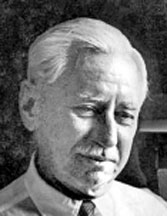Has philosophy lost its lustre?
 Philosophy is no longer a popular subject even at universities. Only
a very few undergraduates follow courses in philosophy. Even general
readers have a pet aversion to philosophy as it is a highly abstract
subject. Philosophy is no longer a popular subject even at universities. Only
a very few undergraduates follow courses in philosophy. Even general
readers have a pet aversion to philosophy as it is a highly abstract
subject.
If you go back to the fifth and sixth centuries before the birth of
Jesus Christ, you will realise that everything gravitated around
philosophy. There were people who defended their philosophy even at the
risk of death. Many rulers feared philosophers and a few of them
respected the thinkers.
Socrates who lived in ancient Greece refused to run away from his
enemies and sacrificed his life in the name of philosophy. Plato,
another Greek thinker, risked his life twice to defend his teachings.
Marcus Aurelius loved philosophy more than his kingdom. However, there
were rulers who did not realise the value of philosophers. For instance,
rulers in Athens forced Protagoras to live in exile. But such instances
are rare in ancient history.
Royal patronage
|

Will Durant: “Philosophy was
once the proud mistress of all
the intellectual globe." |
Alexander the Great elevated his teacher Aristotle and put him on a
pedestal. Soon he became the most learned man in history with royal
patronage of the emperor. People in England elevated Francis Bacon
almost to the level of a prime minister. Frederick the Great spent prime
time with poets and philosophers.
In the ancient world, the ideal ruler came to be known as a
philosopher king. In the modern world, philosophers are not kings and
kings are not philosophers. Alexander the Great, being a philosopher
king, rated Diogenes, another Greek philosopher, second only to the
emperor himself. Once Diogenes asked Alexander to stand aside because
his royal carcass might hide the sun!
Apart from kings, even artists and other learned men had a great
respect for philosophers. According to one historian, more than 10,000
students went to Paris to learn philosophy at the feet of Abelard. Gone
are the days when philosophy and philosophers spread their radiance in
every aspect of life. As Will Durant says, “Philosophy was once the
proud mistress of all the intellectual globe. Today philosophy has aged
and lost her beauty. Now she stands by the wayside receiving no
reverence from anybody.”
State of flux
As the Buddha said, the world is in a state of flux. Nothing remains
the same for ever. As a noted Greek philosopher said, you cannot step
into the same river twice because the river has changed. The Buddha
added a rider saying that not only the water but your leg has also
changed. According to many authorities, philosophy lost its lustre with
the emergence of science.
Modern universities teach astronomy and geology as science subjects.
However, philosophers in the past covered the same area under
“Cosmology.” Similarly, today's undergraduates do not follow courses in
“Natural philosophy” but learn science subjects such as biology and
physics. Even the “Philosophy of mind” has branched off into psychology.
With the onset of scientific thinking, even some philosophers seem to
have veered away from debates and discussions of certain aspects of
life. Plato's dialogues and Aristotle's theories no longer appeal to
them. For instance, the celebrated French philosopher Descartes said,
“Je pense, donc je suis.” ( I think, therefore I am). This gave rise to
the birth of materialism and idealism. Materialists argued that even the
“mind” is a substance just like the body. Idealists, on the other hand,
argued that the only reality we could rely upon is the reality of
thought. Bishop Berkeley's statement that “Nothing exists unless it is
perceived by man or God” has taken ancient philosophy away from its
base.
Krishnamurti
Socrates walked in the streets of Athens “corrupting the young minds
and challenging the rulers.” Modern philosophers write theses, address
selected audiences and try to keep philosophy away from the public gaze.
A notable exception was the late Indian philosopher Jiddu Krishnamurti
who travelled to countries and talked to the people without lecturing to
them. He made philosophy accessible to ordinary men and women through
his talks.
The late Dr E. W. Adikaram was perhaps the only Sri Lankan
philosopher who popularised philosophy among the young generation. Being
a scientist and philosopher, Dr Adikaram realised quite early in his
life that sciences are the windows through which philosophy sees the
world. His regular column in the Silumina and the booklets entitled
Sitivili marked a watershed in philosophical thinking among readers.
With all the scientific advancement, people are aware of the dangers
posed by science. Nuclear power, invented by scientists, is a
double-edged sword. It can improve our standard of life and destroy the
whole world. What is more, science keeps changing from time to time.
However, philosophy has not changed much over the centuries. Even modern
philosophers discuss the same old issues Aristotle and Plato debated in
Athens. If modern rulers, scientists and decision-makers do not take a
philosophical stand in human affairs, the whole world will go up in
flames.
|

